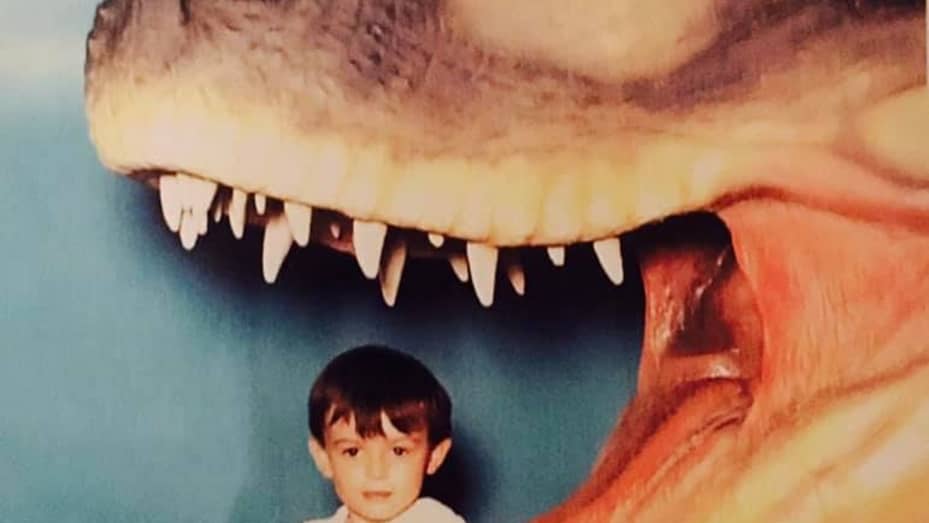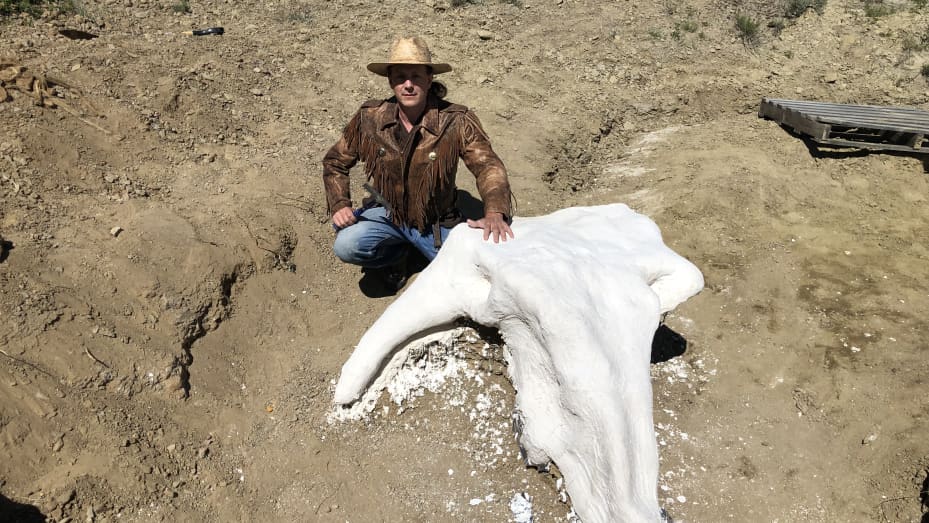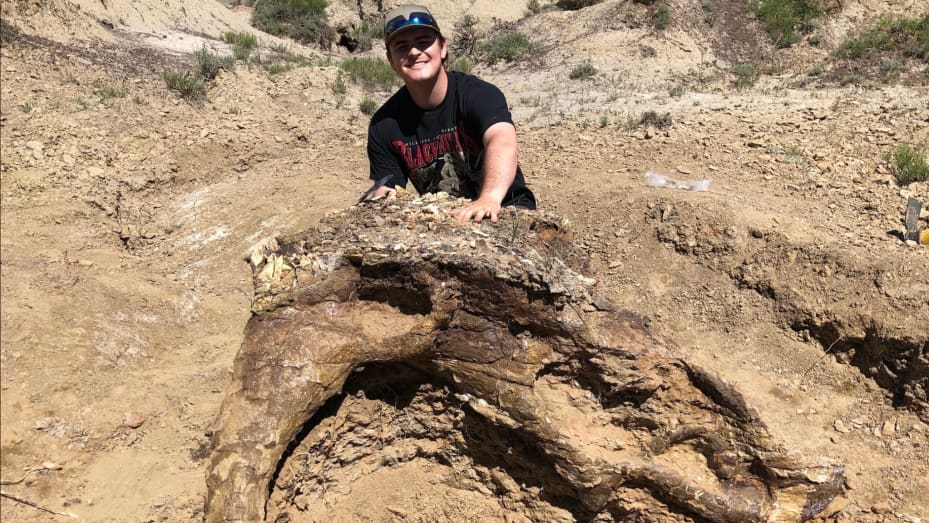Harrison Duran, a 23-year-old student at the University of California, Merced, recently made headlines after discovering a 65-million-year-old triceratops skull in the North Dakota badlands.
Duran had just experienced a career setback. But thanks to some strategic networking and a refusal to give up, the young paleontologist was able to turn a low point into one of the highlights of his career.
It all started with a rejection
Duran grew up in Orange County, where his interests in prehistoric life led him to study biology at UC Merced. A few months ago, during his junior year, one of Duran’s professors mentioned an internship opportunity at the La Brea Tar Pits and Museum in Los Angeles. There, he would have the chance to study small carnivorous animals, both living and extinct.
“I was pretty excited to have that kind of opportunity,” he says. “But I heard back a few weeks later, and it was a pretty sad email. ... You know, one of those rejection emails.”

Instead of dwelling on the disappointment, Duran turned his focus to a trip he had previously planned to North Dakota with Michael Kjelland, a fossil hunter and biology professor at North Dakota-based Mayville State University. They had arranged to dig at the Hell Creek Formation in the Badlands.
The opportunity came from an important career maneuver: networking. Duran and Kjelland met at a conference in early 2017. They hit it off and even went on to found a nonprofit called Fossil Excavators, whose goal was to spur educational opportunities in the paleontology field and allow students and others to “get the opportunity to finally work with bones, instead of just reading about them in a textbook in a class,” says Duran.
So, after being denied the internship that he really wanted, Duran set off to join Kjelland and the Fossil Excavators team for a two-week jaunt into the badlands.
Hitting pay dirt
After only four days of digging, on June 4, Duran came across the fossilized skull of a triceratops, a three-horned dinosaur that’s been extinct for 65 million years.
“It’s pretty rare to find a skull, and it’s pretty rare to find a mostly intact one,” Duran says, adding that although it’s not necessarily a “career-making” find, “it’s definitely career-starting.”

“The Holy Grail would be finding a 90% T. rex or triceratops,” he says.
Still, finding the skull, which the team named “Alice,” was enough to earn him headlines in newspapers around the world. And with the find, Duran has secured himself a foothold in the field of paleontology, which is notorious for being difficult to enter.
Duran’s advice for the disappointed: ‘Go out and do it’
In certain fields, such as paleontology, various restrictions and obstacles often stop people from pursuing their passions, Duran says. In his case, the lack of a master’s degree was among the obstacles that stood in his way — but, he says, persistence helps.
When you encounter an obstacle, “just push it to the side,” he says. Because if you really want to do something, it’s as simple as making the leap. “Go out and get it. Go out and do it. That’s my motto,” he says.


















